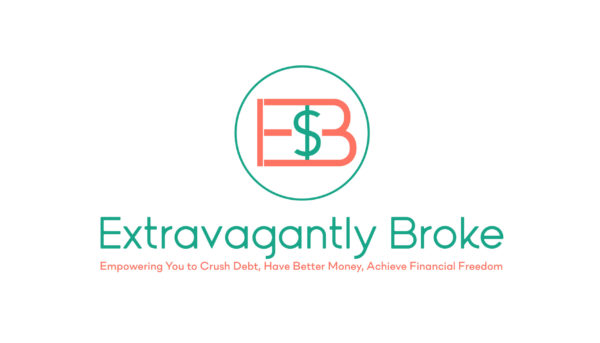Money Challenges: This is part 3 of my Empowering Women Series.
In this post, I had the pleasure of speaking with Kimberly Zimmerman Rand. Kimberly is an Accredited Financial Counselor and Financial Fitness Coach with 20+ years of experience. Here she talks about her money challenges, and how she was never taught about money growing up. She explains how one confusing statement and the events surrounding her mother, have impacted many of her money decisions throughout life. But, she also shares that even though a lack of knowledge can create money challenges, there are actions that anyone can take to improve their finances now!
*Related Post Part One: The Best How To Budget Advice From A Self-Made Millionaire.
*Related Post Part Two: How to Overcome A Crisis And Achieve Financial Independence.
You can listen to this more in-depth and insightful chat with Kimberly below.
The text has been edited for readability.
Table of Contents
Have you experienced any money challenges?
Well, I will say that I did grow up in a family that didn’t talk about money at all!
And one thing that I do remember is that at some point in my childhood, I think I was maybe eleven or twelve, I was asking my mom for something.
I don’t even remember what it was. But she got really exasperated with me and said:
“You just don’t understand the value of a dollar!”
And that stuck with me!
Because she had never explained to me the value of a dollar. And I didn’t know what the value of a dollar was.
So, the way that I kind of responded to that is that I actually became more of a compulsive saver.
If I got gifts from relatives, or if I got a little extra money here or there, I just put it in my savings account. That has been protective in a way because being able to save definitely protects you in the long run.
I will say that it’s also led to some struggles with myself and with my family too.
I have more of a fear of spending:
- So with my business, I probably haven’t taken as many risks as I should have because of the fear of spending.
- I know with my husband that we had struggles because he’ll want to do something with our family. And I’ll say, oh, I don’t think we have the money. We do! But I don’t want to spend it.
- I’ll also say that I think there’s a gender issue here [as well]. Because my mom experienced a lot of gender discrimination in her professional life. And she wasn’t able to earn as much as she should have been able to earn.
So she was a school teacher. And I think Elizabeth Warren shared just shared this story about getting fired when her boss found out she was pregnant. My mom was [also] fired when her boss found out she was pregnant.
Because in the 1970s you could do that! You could say:
Well you’re pregnant now! You’re done!
And, my mom went without working for quite some time and wasn’t able to earn as much.
I think I watched that, And I absorbed that.
And so that feeling of:
- What if no one ever hires me to do anything!
- I’ve got a hold on to whatever dollars I have!
And so that’s been my personal struggle.
I don’t hear that story very often when I’m out listening to people’s stories. But I think it’s an important story to share. Because I think there are probably other people like me who just don’t talk about it publicly.

[How did you overcome your money challenges?]
So I will say the breaking point was that I just got tired of feeling that weight on my shoulders.
Even though I know I’m a qualified professional, [I had the feeling] that no one’s ever going to hire me again.
And so I actually did hire a professional coach a couple of years ago to kind of work through all that with me.
Because:
I was not able to ‘do-it-yourself’ my way out of that box.
I had spent my whole adult life stuck there. And I knew I wanted to get unstuck.
So I did work with a professional coach who does some career coaching. And I was able to MOSTLY overcome that fear of never being able to earn enough.
And, it’s definitely still a work in progress.
But it also is just another example of why I feel so strongly about trained professional coaches doing the work that they do.
Because it absolutely helped me have those light bulb moments that I don’t think I could have had by myself.
DeShena: Oh my goodness, I love that! Light bulb moments! Yes! And I totally [understand] that fear of spending. Because I think that’s where I shifted to. I went from overspending — to being kind of afraid of spending. Because I was so worried that I was never going to get out of this debt. There was a point where I felt like I couldn’t see past my debt. And to know that I’m here now, finally 100% debt-free. It’s been about a month and a half, and it still hasn’t sunk in yet.
I still keep checking my balances. It’s like I’m still kind of always worried I don’t have enough. Or I’m thinking, okay. am I sure that I paid everything and is everything on time? You know I still have that little bit of anxiety. I guess it’ll take a little time for that to sink and settle in. Because I’ve dealt with always playing catch-up to my bills versus being ahead of them. And actually having money in the bank, that’s all really new for me.
Kimberly: Yeah, and I also have curiosity around what percentage of Americans don’t have any money-related anxiety. My guess is that the number is probably relatively small.
And I would say that since [starting my] blog, I’ve done more research into the history and social policies. And we have been on this path as a country of kind of dissolving all the social structures that were in place to protect families since the 1980s.
So we’re 35 years into this slow-motion Trainwreck. Whereas, people’s financial lives are getting more and more fragile every single year.
And so [things are] really hard! You know, I look back on my childhood and at my parent’s friends. And I feel like the ones who were in Unions and had pensions — they lived pretty comfortably.
It’s like, they knew their jobs were protected. And they knew they had a retirement.
They weren’t fantastically wealthy! But they had security!
And I feel like:
- Union membership is down to 11%.
- Healthcare keeps getting more expensive.
- So many people are dealing with student loan debt.
And it’s getting harder and harder and harder just to be in the middle!
Here’s a short video that speaks to Kimberly’s point about the disappearing middle class.
With the clients that you’ve helped, what are the biggest money mistakes that you notice?
I would say that one common thing that most of my folks have is that:
1. They’re just not tracking.
A lot of people do this sort of mental accounting:
- They know how much it cost to fill the gas tank.
- They know how much a basket of groceries is.
- But, they’re not really watching every month to see where the spending leaks are.
[Yet] they do have families to support. And they do have their priorities. But…
2. Balancing their checkbook is not a priority. It’s a chore!
I mean, virtually everyone I work with has never had a financial literacy class. So they really don’t know what that entails.
Virtually everyone I work with did not have parents who talked to them about money. I mean, it’s very far in between when you have someone who’s like — oh yeah my mom taught me about blah blah blah.
And you’re like, really? Mine didn’t!
[So that lead to…]
3. They have a family history of not talking about money.
They just kind of got sprung into adulthood with the adulthood responsibilities. And they just needed to make it work!
So for some people:
- They’ve gotten in trouble with credit card debt.
- They’ve had medical incidences where their health insurance wasn’t good enough. And it ended up on their credit report.
- The spouse took care of the money, and then the marriage dissolved. [Now] the remaining spouse had to learn everything from scratch.
So I’ve seen all of that happen. But just as a generality — it’s just not watching [their money closely enough or not at all].
And [they’re] not watching from the combination of not being taught to watch. And then, from having other priorities in your life that make watching fall by the wayside.
DeShena: That is very telling and interesting because I think you’re right. Even growing up in my household, we weren’t taught about money either, except that we didn’t have any. I love that you say they were just kind of sprung into adulthood. And now they just have to deal with it. So most of us just do what everybody else is doing, which is typically the wrong thing! And then we end up with credit cards.
I got my first credit card in college, and I didn’t even have a job! But the credit card representatives were on the campus pitching this to students. And they didn’t worry that you didn’t have a job. They would say that’s okay because we want to get you now so that when you get a job will already have you. And we know that one day you’ll be making some money and you won’t have any trouble paying this so you should start early. And I fell for it!
Kimberly: Yeah, luckily, the Credit Card Act of [2009] took that all away. So college students aren’t getting those offers the way that you and I got those offers, which is good! But there’s still a whole lot more work to do!
So do you have any tips or advice for someone who may be struggling with money challenges?
1. What I tend to tell people is to collect information and support wherever you’re comfortable doing it. So places like Google searches, books, articles, and looking for people telling their story. I think all of that is great.
And that’s what I love so much about FinCon. There so many people telling their stories online. And online is such a safe place to be for people who don’t want to have that face-to-face conversation immediately.
2. Then I would say secondarily, to get professional help. There is a whole Cadre of professionals across the country who are counselors, Educators, and coaches. [They] are there and available to work with people either one on one, in a group, on Zoom or maybe face-to-face.
There are services out there — that once you’re ready can do a lot of good. And so, that combination of information seeking and actual Professional Service seeking…
I think that’s what makes the difference!
DeShena: Absolutely! That’s really good advice. I can’t agree more! Information-seeking and getting some professional help. Or finding whoever that you’re comfortable with to talk to.
3. And you know a lot of times employers even offer [financial] advice through there EAP programs. And that can be done on a one-to-one or you know, kind of anonymous [confidential] basis. It’s where you can talk, and they can help you through [your money challenges] without you having to feel ashamed. Because that’s what they’re there for.
Kimberly: Exactly! Yep, they’re all tools. But you have to know that they’re there. I think so many people don’t even know.
They may have heard about their EAP in their new employee orientation, and then they forgot.
And they don’t know that there’s money [that may be available] and it’s part of [an employer] service.
So it’s on us as professionals to get the word out. And then, it’s on people who want to make a change to go look for it because it is there.
So where can people find you?
So, the easiest way for people to find me is my website DragonflyFinancialSolutions.com.
And on my website are my links to my three social media sites. I have LinkedIn, Facebook, and Twitter. And in the top right-hand corner of the website, people can find me on social media.
But they can also communicate directly with me through my website. There’s a contact page, and I’m always happy to get notes and questions.
And on a pretty regular basis, I do free 15-minute consultations with folks if they have a question about my service.
Thank you so much, Kimberly!
Takeaway
Our past experiences can shape our behavior and money decisions. And sometimes, that may lead to some unfavorable money challenges.
But fortunately, as Kimberly mentioned, there are things you can do to begin to improve your finances.
They include:
- Keeping track of your income and expenses. And make balancing your checkbook a priority.
- Seeking information. Books, articles, and google searches are good places to start.
- Seeking professional help. Sometimes we can’t do it on our own.
- Being willing to talk about your money challenges and find support wherever you can.
- Checking into your employer’s EAP for additional help.
I was happy to tap into Kimberly’s many years as a financial coach to share with you some of her valuable insight.
I hope you found some valuable information to help you with your financial journey.

Kimberly Zimmerman Rand is passionate about people living their best lives through household finance. As Principal at Dragonfly Financial Solutions LLC, a firm providing personal finance consulting, education and coaching, she is an eternal questioner, strategic thinker, and effective problem solver. Kimberly has been delivering results-oriented design on both live and web-based platforms to organizations looking to strengthen the financial capability of their communities for over 20 years.







Excellent article with a lot of great tips – thank you!
Thank you, glad you enjoyed it!
That’s very true about credit cards. Not even a department store would give me a credit card even after I’d had a full time job for a year. I ended up having to get a card through Orchard Bank which no longer exists and basically setting up a bank account with them and using their bank card as a credit card so I could build credit. After a year, I was able to get a Kohls card, and a few years after that, a major credit card. But I really had to prove myself for years, and it helped me to build good spending habits.
I know it can be frustrating when you can’t get credit but perhaps it was for the best. It gave you time to become financially responsible and allowed you to build good spending habits to prove yourself. I certainly would have been better off if no one gave me a credit card when I was only 18 and irresponsible.
There are some great tips here that I need to implement right away. Thank you for your advice!
You are very welcome and thanks for your comment! 🙂